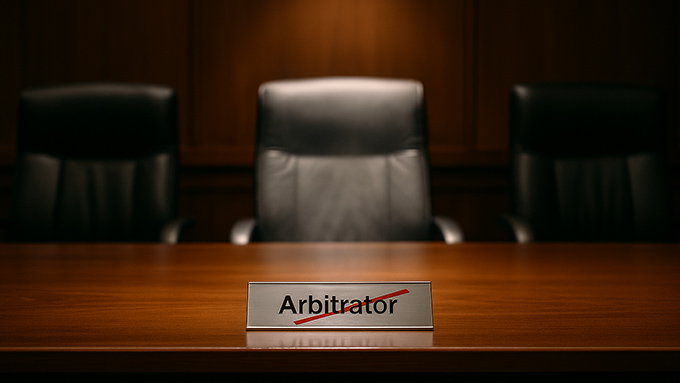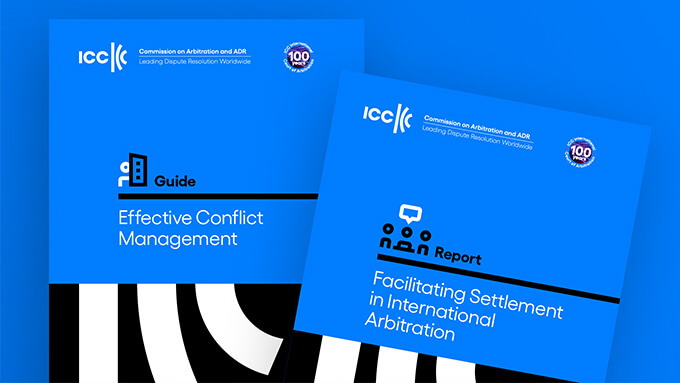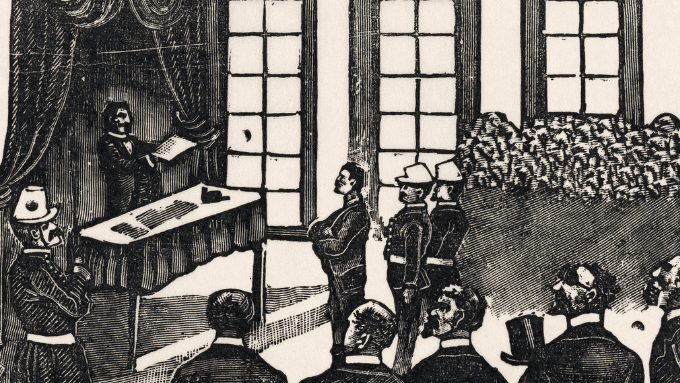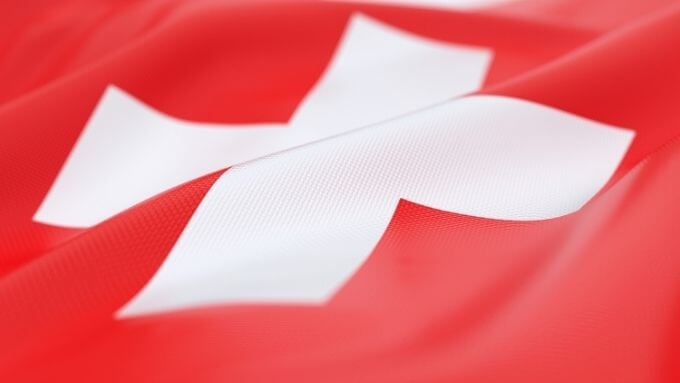Voluntary Document Production in Arbitration: Civil-Law Approach
Introduction[1]
The importance of the documents as evidence in an arbitration is undeniable. The parties should be in the position to present the documents that they would like to rely upon in order to prove or defend their cases.
Procedural rules applicable to international arbitration, including evidence and document production, remain to be a hot topic due to parties and practitioners belonging to different legal traditions. Since the chances of success mainly depend on whether or not a party can prove its claims, it is crucial for the parties to choose the procedure most suitable for their dispute.
When determining the procedure, including evidence and document production, the parties may choose to adopt a common law (discovery) or a civil law (voluntary production) approach, depending on the nature of the dispute. Accordingly, the parties may draft their own rules, refer to institutional arbitration rules or procedure laws, or incorporate internationally accepted rules. If the parties fail to come to such an agreement, the applicable procedure will be determined as per the laws of the seat of arbitration. For this reason, it is of significant importance to understand the civil law perspective on document production.
Comparative Overview on the Applicable Procedural Rules of Civil Law Jurisdictions
The taking of evidence and production of documents are considered to be the core issues of arbitral procedure. Although in most civil law jurisdictions, inquisitorial traditions do not provide for party initiated production of documents, and the evidence-taking process is largely controlled by the courts, this approach differs in the case of international arbitrations[2].
Applicable Procedural Rules to International Arbitration
In almost all civil law countries, in accordance with the principles of freedom of contract and party autonomy, the parties are free to choose the rules that are applicable to international arbitration.
In the absence of such a choice, the applicable procedural rules to international arbitration differ from jurisdiction to jurisdiction. In certain countries, the legislators make a distinction between international and domestic arbitration and provide different laws. We can see this dualist system in Turkey and Switzerland; however, in France and Germany, a single law governs both international and domestic arbitrations.
In Turkey, the Turkish International Arbitration Act (“IAA”), which is essentially based on the United Nations Commission on International Trade Law (“UNCITRAL”) Model Law on International Commercial Arbitration is the applicable law setting forth the principles and procedures concerning international commercial arbitrations. Should the dispute have no foreign element and the arbitration is seated in Turkey, then the articles on domestic arbitration set forth under the Turkish Code of Civil Procedure (“CCP”) will find application.
In Switzerland, Chapter 12 of the Swiss Federal Private International Law Act (“PILA”) -which is not based on the UNCITRAL Model Law, though there are no fundamental differences- applies to international arbitration. If the prerequisites provided by PILA are not fulfilled, then the rules governing domestic arbitration under the Swiss Civil Procedure Code (“CPC”) will find application. Similar to Turkish law, under Swiss law, two pieces of legislation stand respecting arbitration, one for international arbitration, and the other for domestic arbitration.
In France, as opposed to Turkish and Swiss laws, there is only one piece of legislation concerning arbitration. Book IV of the French Code of Civil Procedure (“French CCP”) governs both domestic and international arbitrations under two separate titles; therefore, the French legislator has adopted a dualistic approach with respect to arbitration, separating domestic and international arbitrations.
In Germany, as opposed to France, the UNCITRAL Model Law has been adopted. The tenth book of the German Code of Civil Procedure (“ZPO”) governs arbitral proceedings applicable to all arbitrations seated in Germany. Regarding the applicable procedural rules, it does not distinguish between domestic and international proceedings.
Evidence and Document Production
In accordance with the principle of party autonomy, the parties are free to choose the rules on evidence and document production that they wish to apply to their dispute. In Turkey, Switzerland and Germany, the arbitral tribunal does not have coercive powers for taking evidence and producing documents. However, in France the arbitral tribunal is granted with such a coercive power.
In Turkey, the IAA does not contain a list on what kind of evidence is admissible but, rather, simply addresses the tribunal’s powers on the taking of evidence and appointment of experts. However, such power lacks coercive consequences when the parties or third persons choose voluntarily not to honor the tribunal’s orders, which brings us to courts’ assistance when needed.
In Switzerland, Article 184 (1) of the PILA explicitly equips the arbitral tribunal with the power to conduct the taking of evidence. Even though there is no provision on what kind of evidence is acceptable, a tribunal acting under Chapter 12 of the PILA will usually adhere to commonly known evidentiary means, such as documents, facts and expert witnesses, as well as site or subject-matter inspections.
In France, as per Article 1467 of the French CCP, unless parties agree otherwise, the arbitral tribunal shall take all necessary steps concerning evidentiary and procedural matters. As opposed to Turkish and Swiss laws, French law goes one step further and furnishes the arbitral tribunal with the power to enjoin the parties to follow the tribunals’ orders.
In Germany, unless the parties agree otherwise, the arbitral tribunal shall decide on the evidentiary means and its conduct in such a manner as it considers appropriate. The arbitral tribunal can order document production and summon facts and expert witnesses to attend a hearing for examination[3]. The arbitral tribunal, however, cannot coerce a party to produce documents.
Court Assistance
Although the arbitrators are generally empowered to make orders for taking of evidence, in most of the cases, the assistance of the court will be required to execute the arbitral tribunal’s orders. Court assistance is available in all civil law countries that we examine hereunder. The common approach of Turkey, Switzerland, France and Germany is that the courts cannot order the production of documents against the will of any party. However, different jurisdictions provide different sanctions in the case of non-compliance of court decisions.
In Turkey, as per Article 12/B of the IAA if the arbitral tribunal needs assistance in the taking of evidence and in the production of documents, it may request from the civil court of first instance to issue an order to that effect. In such case, the applicable law will no longer be the IAA, but rather the CCP. However, obtaining documents from the parties to the arbitration, or from third parties, might still be challenging because, under the CCP, Turkish courts do not have the power to force the parties to submit evidence or produce documents against their will.
In Switzerland, Article 184 (2) of the PILA provides for court assistance. The tribunal, or one of the parties with the consent of the tribunal, may seek assistance from the state judicial authorities when a party refuses to comply with the tribunal’s orders. In such a case, the Swiss courts shall apply the rules on evidence and document production set out under the CPC. However, it appears that recourse to Article 184 (2) PILA is very rare in practice[4].
In France, court assistance is available under the French CCP upon leave of the arbitral tribunal, when one of the parties wishes to rely on an official or private deed, or on evidence held by a third party. Therefore, when a document or piece of evidence is owned by, or is in the possession of, a third party to the arbitration, the parties may ask the state court to compel the third party to produce the evidence.
In Germany, as with all other three civil law jurisdictions, the ZPO also provides for court assistance as a means of taking of evidence. As per Section 1050 of the ZPO, when the parties or third parties fail to voluntarily comply with a tribunal’s orders, the parties, with the approval of the tribunal, may request the assistance of state courts for evidence gathering.
In practice, rather than imposing sanctions or seeking assistance from the local courts, arbitrators are more inclined to draw adverse inferences from a party’s refusal to produce documents[5]. This authority is recognized in some institutional rules, national laws, as well as the IBA Rules and Prague Rules. (see infra 3).
A Reflection of Civil Law Perspective: Prague Rules
The multinational nature of international arbitration results in initiatives creating custom-made procedural rules for arbitration so that the parties and the practitioners can follow a unified set of procedural rules, albeit their different legal backgrounds. The drafters of the IBA Rules on the Taking of Evidence in International Arbitration (“IBA Rules”) bridged that gap between the common law and civil law traditions of the taking evidence by developing a nearly standardized procedure in international arbitration. However, the IBA Rules are often being criticized for favoring the common law perspective, as the rules follow a more adversarial approach with respect to document production, fact witnesses and party-appointed experts, as well as the party’s entitlement to cross-examine witnesses.
In the face of these criticisms, a Working Group, formed of representatives from predominantly civil law-based jurisdictions, drafted the Rules on the Efficient Conduct of Proceedings in International Arbitration,[6] (“Prague Rules”) which are designed to supplement the procedure to be agreed upon by the parties, or otherwise to be applied by arbitral tribunals in a particular dispute. As opposed to the adversarial approach adopted in the IBA Rules, the Prague Rules seek to promote a civil law inquisitorial-type document production with the aim of enhancing the efficiency in the conduct of arbitration proceedings.
One of the most important features of these rules is the “proactive role” it vests in the arbitrator. The novelty goes to the tasks that these rules assign to the arbitrator, and to the timeframe within which such tasks are to be carried out[7].
Article 2.2 of the Prague Rules sets forth certain tasks for arbitrators during the case management conference or, sometimes, at a later stage. Under Article 2.4 of the Prague Rules, the arbitrators are given the freedom to express their preliminary views at the case management conference. The arbitrators are also given the discretion to decide on bifurcation of the proceedings when establishing the procedural timetable. These examples clearly signal the intention behind these rules of giving the arbitrators a more proactive role during the conduct of the proceedings.
As for fact finding, Article 3 of the Prague Rules reemphasizes the arbitrator’s duty to take a proactive role. This article encourages the arbitrator to take an active role in establishing the facts of the case, which is also no stranger for a civil law judge.
The traces of civil law tradition, and perhaps the most characteristic features of the Prague Rules, may be found in Article 4. According to this article, the arbitral tribunal will try to avoid extensive production of documents, including any form of e-discovery. Parties, however, may always request the arbitral tribunal to order the other party to produce a specific and identified document, so long as it is relevant and material to the outcome of the case, it is not in the public domain, and it is in the possession of the other party.
In general, the Prague Rules discourage the common law practice of extensive discovery, while preserving the parties’ right to request the tribunals’ proactive involvement to the fact-gathering process, when needed, and giving the tribunal extensive discretion on admissibility of such requests. Even though these restrictions may help reduce the costs for the parties and the length of the proceeding, the concerns over the right to be heard and due process remain in dispute.
Conclusion
Due to the consensual nature of international arbitration and the principle of party autonomy, the parties have the freedom to determine the arbitral procedure to be applied to their dispute in arbitration. If the parties fail to determine such procedure, the applicable procedure will be determined by the arbitrators, unless otherwise provided for by the applicable laws and, in most of the cases, the arbitrators tend to apply the procedural laws of the seat of arbitration.
When the seat of arbitration is in a civil law jurisdiction, it is important to be mindful of the depths and limits of voluntary document production. The applicable laws of civil law countries tend to give the arbitral tribunal the power to gather the evidence it deems appropriate. However, this power heavily relies upon the voluntary performance of the parties, because the arbitral tribunals generally lack coercive powers when the parties fail to comply with their instructions.
Even though the tribunals cannot force the parties or third parties to produce documents against their will, the arbitrators, or the parties upon the approval of the tribunal, may seek assistance from judicial authorities for the taking of evidence and production of documents. If the party insists on refraining from producing evidence or documents despite a court order, the applicable laws generally provide for adverse inference, as is the case with the Prague Rules, or may impose disciplinary fines on the non-complying third party.
[1] This article is a summary of the report presented at the XIV. Mid-Med Conference organized on-line by the European Court of Arbitration on 26 October 2020.
[2] BORN, Gary, B: International Arbitration: Law and Practice, Second Edition, 2016, p. 191.
[3] FLECKE-GIAMMARCO, Gustav/BÜCHELER, Gebhard: Arbitration procedures and practice in Germany: Overview, Thomson Reuters Practical Law, February, 2020.
[4] See GEISINGER, Elliott/RANEDA, Julie: Legislative Framework, International Arbitration in Switzerland, A Hanbook for Practitioners (edited by Elliott Geisinger and Nathalie Voser), Second Edition, 2013, p. 7 fn. 15.
[5] See also BORN, pp. 196-197. For an analysis on adverse inferences, see VAN HOUTTE, Vera: Adverse Inferences in International Arbitration, Written Evidence and Discovery in International Arbitration (edited by Teresa Giovannini and Alexis Mourre), Dossiers VI, Institute of World Business Law, 2009, p. 195, et seq.
[6] https://www.praguerules.com/upload/medialibrary/9dc/9dc31ba7799e26473d92961d926948c9.pdf.
[7] PATOCCHI, Paolo Michele: “The Prague Rules on the Efficient Conduct of Proceedings in International Arbitration: A Step Forward?” International Arbitration Symposium, April, 2019, Ankara, p. 157. For full publications of the Prague Rules, see also https://www.praguerules.com/publications/.
All rights of this article are reserved. This article may not be used, reproduced, copied, published, distributed, or otherwise disseminated without quotation or Erdem & Erdem Law Firm's written consent. Any content created without citing the resource or Erdem & Erdem Law Firm’s written consent is regularly tracked, and legal action will be taken in case of violation.


























